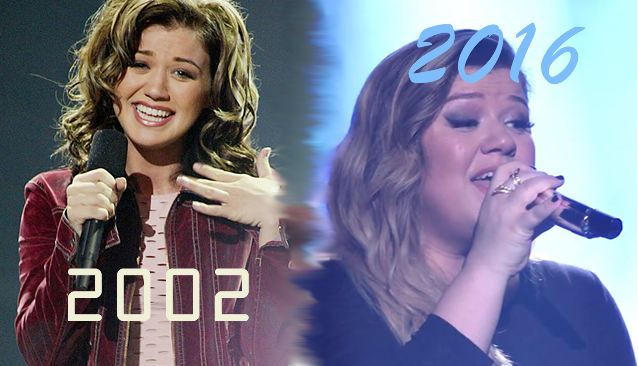American Idol wrapped up its awe-inspiring 15-season run on Fox last night, crowing a final Idol, Trent Harmon, in an emotional two-hour finale that featured just about everyone who’s ever been anyone on the show. Watching performances from a litany of former Idols who’ve legitimately become pop culture idols reinforced just how successful the show has been in living up to its titular premise.
And it also serves up an end-of-an-era opportunity to ponder and parse the show’s legacy in terms of its cultural influence.
It was a different world back in June 2002 when American Idol premiered on Fox, simultaneously and forever changing both the music world and the TV world. The reality TV competition trope of earnest, diamond-in-the-rough performers being rated by judges is a given now. But in the early days of the new millennium, it was still a compelling novelty that attracted an enormous fan following, making the show the highest-rated slot on television for nine consecutive years. At its peak for the premiere of Season 6, American Idol drew 37.4 million viewers.
Of course, scores of shows would ultimately emulate Idol’s template, from Dancing With the Stars to America’s Got Talent to The Voice, to name just a few.
Idol not only facilitated a fresh way of discovering stars such as Kelly Clarkson and Carrie Underwood, it did so during a season of tremendous technological and cultural change. In June 2002, Apple’s iTunes and iPod were both in their infancy, not yet the dominant downloading platforms they would eventually become. Smartphones as we know them now didn’t exist. Nor did Facebook (which came along in 2004), YouTube (in 2005) or Twitter (in 2006). People were still buying “real,” physical albums on CDs. And none of us had yet heard of a long list of artists who dominate mainstream pop music today, including Taylor Swift, Rihanna, Katy Perry, Justin Bieber, Lady Gaga and Adele.
Truly it was a long time ago in a galaxy far, far away.
Watching the finale last night brought back lots of memories, like hitting redial to vote for contestants like Kelly Clarkson or Chris Daughtry back in my just-married pre-children days. But it also reminded me of the other two aspects of Idol’s legacy that got vexingly juxtaposed together almost every season: contestants singing (or talking, at least) about their Christian faith contrasted against the many moments that reinforced the music industry’s worldly value system.
Last night, for instance, winner Trent Harmon finished his performance by saying, “Thank You, God.” A few minutes before that, Carrie Underwood—arguably the show’s most successful alumni—sang her God-focused song about baptism, “Something in the Water.”
Underwood has often talked about her Christian faith. And she’s hardly the only one. Idol’s ranks are filled with singers who bore witness to the importance of their Christian beliefs, from Kelly Clarkson to Jennifer Hudson, Chris Daughtry to Rubben Studdard, Jordin Sparks to Kris Allen, Danny Gokey to Phil Stacey and Melinda Doolittle. Several have gone on to become mainstays in the Christian music world, Mandisa and Colton Dixon chief among them. And perhaps that’s no coincidence, given the fact that many of those who performed on the show either grew up singing in their churches or spent time leading singing in their churches.
I think the thing that’s remarkable to me about the public expressions of faith that these artists have made is the fact that there aren’t many other venues where artists have a culture-wide platform to articulate their faith. But that happened regularly with many of Idol’s contestants, right up to the show’s conclusion.
On the other hand, the presence of so many Christian contestants ultimately didn’t alter the fact that American Idol wasn’t created to give believers a platform for evangelism. Hardly. Instead, it was designed to mint new pop stars. And that often involved spicing things up with risqué content.
I was reminded again of that sobering reality last night, too. Not long before Carrie Underwood took the stage, judge Jennifer Lopez performed a routine that involved peeling back layers of her outfit until what remained was, well, quite a bit less than what she started with as she waggled her backside at the audience.
As inspiring as it sometimes was, then, American Idol was never something that could be embraced uncritically or without active discernment. It was always a mixed bag that was equal parts invigorating and maddening. It certainly transformed the way we all think about fame—and the way we might reach for it.






Recent Comments